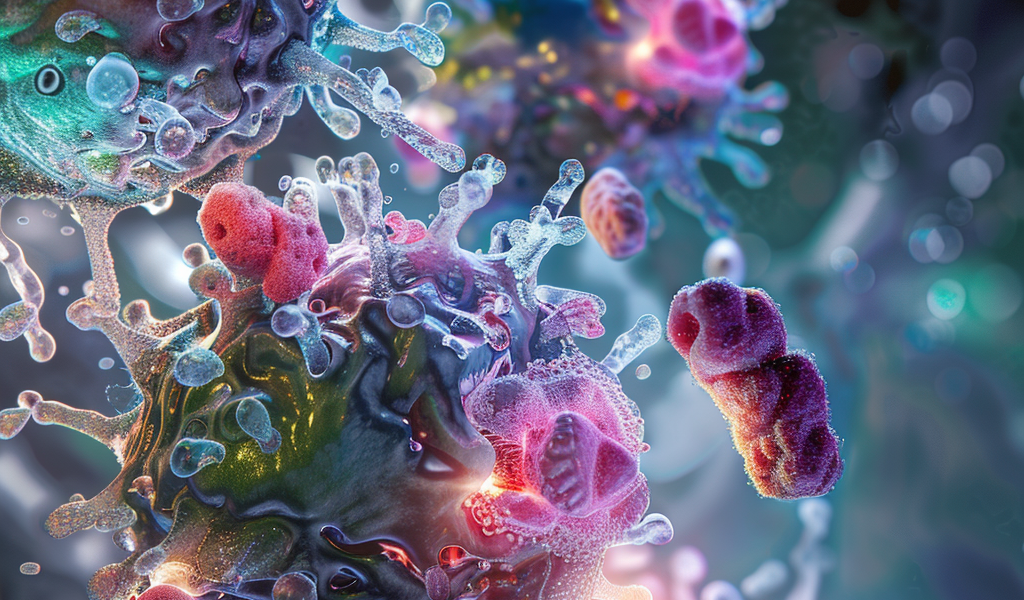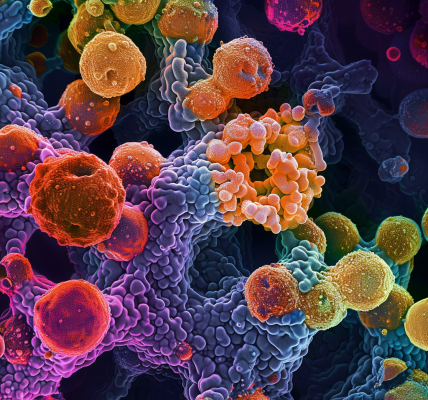New Insights into Immune Responses: Mast Cells and Neutrophils Interact in Allergic Reactions
Mast Cells and Neutrophils: A New Perspective on Immune Responses
Recent research from the Max Planck Institute of Immunobiology and Epigenetics in Freiburg, in collaboration with the University of Münster, has unveiled a remarkable aspect of the immune system, particularly in the context of allergic reactions. This study highlights the unexpected interaction between mast cells and neutrophils, two pivotal components of the immune response.
Mast cells are well-known for their role in allergic reactions. These cells release various chemicals when they encounter allergens, leading to symptoms such as inflammation, swelling, and other typical allergy responses. However, this new research has revealed that mast cells possess the ability to capture and utilize living neutrophils, which adds a new layer of complexity to our understanding of immune responses.
Inflammation is a crucial biological process that occurs in response to harmful stimuli. It is characterized by symptoms such as heat, pain, redness, swelling, and a loss of tissue function. While inflammation serves a protective role by helping the body eliminate harmful agents and initiating tissue repair, excessive inflammation can lead to tissue damage and various diseases.
The immune system comprises a diverse array of cells that cooperate during inflammatory responses. The specific types of immune cells involved can vary significantly based on the nature of the harmful stimulus, which in turn influences the overall outcome of the inflammatory response.
Mast cells are strategically located within tissues and play a vital role in initiating inflammation. They contain granules filled with pro-inflammatory substances that are released upon encountering potential threats, including allergens. In many individuals, mast cells can react to benign environmental factors that are perceived as allergens, leading to allergic reactions. Despite their importance, the interactions between mast cells and other immune cells during allergic responses have remained largely unexplored.
To investigate these interactions, the research team employed specialized microscopy techniques to visualize the real-time dynamics of activated mast cells and other immune cell types during allergic reactions in live mouse tissues. Under the leadership of Tim Lämmermann, who became the director of the Institute of Medical Biochemistry at the University of Münster in October 2023, the team made a startling discovery: neutrophils were found residing within mast cells.
“We could hardly believe our eyes: living neutrophils were sitting inside living mast cells. This phenomenon was completely unexpected and probably would not have been discovered in experiments conducted outside of living tissues,” Lämmermann noted.
This groundbreaking discovery opens up new avenues for understanding the immune system’s functioning, especially in the context of allergic reactions. The implications of this research could lead to novel therapeutic strategies for managing allergic diseases and other inflammation-related conditions.
The study underscores the importance of examining immune cell interactions in their natural environment, as traditional laboratory methods may not capture the full complexity of these cellular dynamics. By using advanced microscopy techniques, researchers can gain insights into the behavior of immune cells in real-time, providing a more accurate representation of their roles during allergic responses.
This research not only enhances our understanding of mast cell and neutrophil interactions but also raises questions about the potential consequences of these interactions for allergic diseases. Further investigations are needed to explore how this newly discovered relationship between mast cells and neutrophils influences inflammation and immune responses in various contexts.
As scientists continue to unravel the complexities of the immune system, studies like this one are crucial for developing effective treatments for allergic conditions and improving our overall understanding of human health. The findings from the Max Planck Institute and the University of Münster represent a significant step forward in immunological research, paving the way for future discoveries that could transform our approach to treating allergies and inflammation-related diseases.





